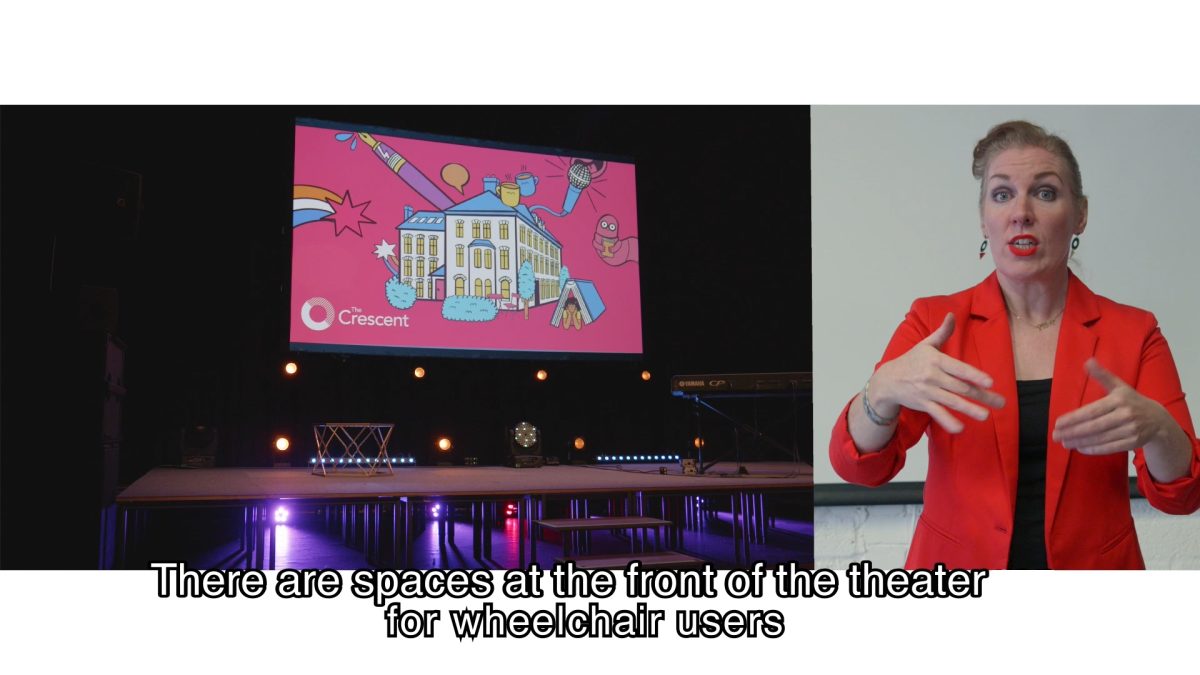We run several programmes to support organisations to make the arts and culture sector more accessible to d/Deaf, disabled, and neurodivergent people. The programmes mentioned below are aimed at organisations and venues. If you represent a venue and would like to know more, or to enrol on a scheme, please email Jonathan.
If you are an individual artist or musician looking for information about support and funding for individual d/Deaf, disabled, and neurodivergent artists, please look at the Individual Support page.
The Arts and Disability Access Awards is our flagship programme of training and support for arts, culture, and heritage organisations who want to make their activities as accessible as possible. It is designed and led by d/Deaf, disabled, and neurodivergent people, who bring with them a wealth of experiential knowledge, and the freshest ideas about disability rights and accessibility for the arts.
The programme has 3 elements:
In this part of the programme, you will work with one of our trained Access Advisors. Our Advisors were recruited for their disability experience and knowledge, and have been comprehensively trained in disability and accessibility topics. The Advisor will guide you through a 3-step process of information gathering and planning, improvement, and accreditation.
Your Advisor will get to know you and your organisation, offer constructive feedback on what is working and what can be improved, and provide you with ongoing support to produce and act on a realistic improvement plan. They also provide information and resources that will help you to make informed decisions about improvements and materials. They will conduct a comprehensive audit of your space and practices. Our audit includes physical access, promotional materials, websites and social media, communication provisions like sign language and captioning, practices and policies, recruitment and working practices, working with disabled artists, and consultation with disabled people.
We have designed this element to be realistic and manageable. We do not measure you against an external standard that may be unworkable for your organisation. We start from where you are right now, and work with you on a timeframe that suits your other commitments.
While we acknowledge what you are already doing well, the main focus is improvement. We work with you to identify goals to work towards, and accredit you when you meet them.
We will present successful organisations with a certificate at a biannual celebration event, and provide materials for your website. We will also share your achievements across social media to let everyone know what you have been doing.
Organisations who engage with the programme across 3 years, and who make continual improvement, will receive Accessibility Champion status for 3 years. We will present you with a physical award to mark this achievement.
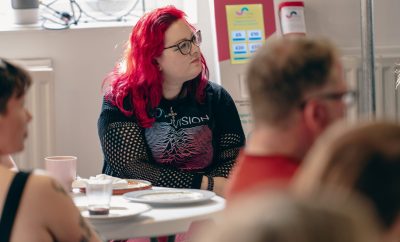
“We have better knowledge of embedding access into every step of what we do, not adding it on at the end of processes and planning”.
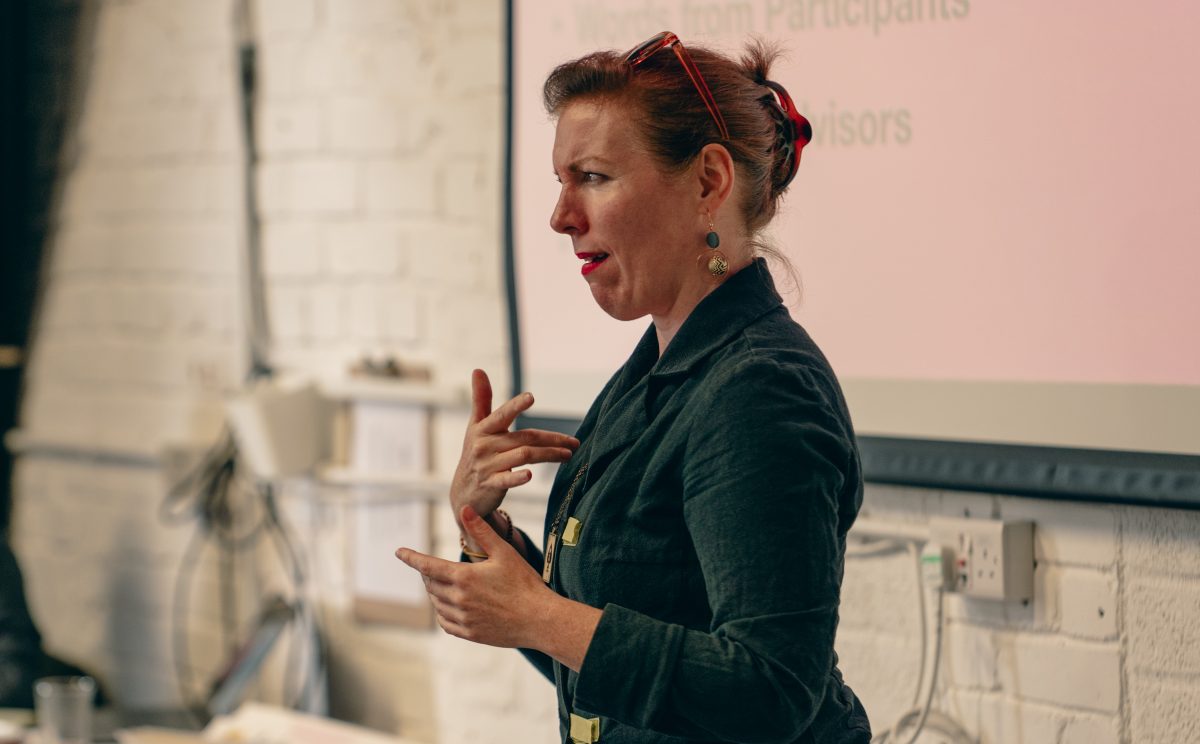
“It’s made us so much more aware and put accessibility near the top of the agenda when considering decisions”.
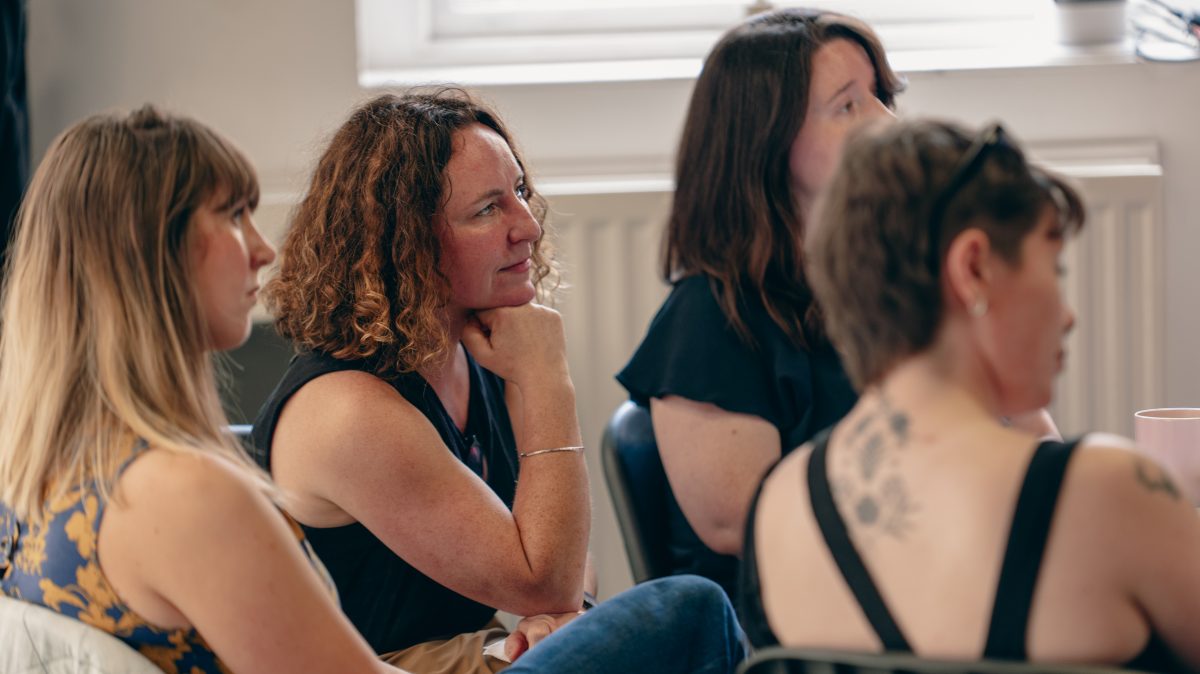
This comprehensive, practical, and relevant training programme covers a wide range of aspects of disability and accessibility. Units are designed and led by d/Deaf, disabled and neurodivergent people and artists.
We cover topics including physical and information accessibility; disability theories, rights and the law; the disability arts movement; the Deaf community, visual impairment awareness, learning disability, and neurodivergence; and intersectional approaches to disability.
The programme runs for 8 weeks. Each Unit lasts 3 hours.
Units are delivered by Jonathan Mitchell (Access and Inclusion Manager) alongside disabled artists and experts by experience, and access service providers.
We offer the course for a cohort of staff from different arts, culture, heritage, and community organisations. This allows for practical discussions focused on live issues from throughout the sector. We can also offer the course for staff within your organisation, or deliver the Units on a one-off basis.
Participants receive a certificate at the end of the course, and are invited to a twice-yearly celebration event.
“What stood out most to me was the inclusion of individuals with lived experience of the disabilities discussed. Rather than having someone speak solely on their behalf, hearing directly from them made the course much more personal and insightful”.
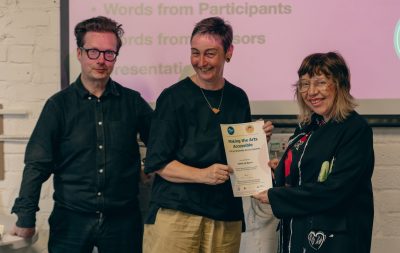
“The depth of understanding Jonathan demonstrated was remarkable, the pace of learning was great. Lots of time for conversation in groups and learning about other experiences”.
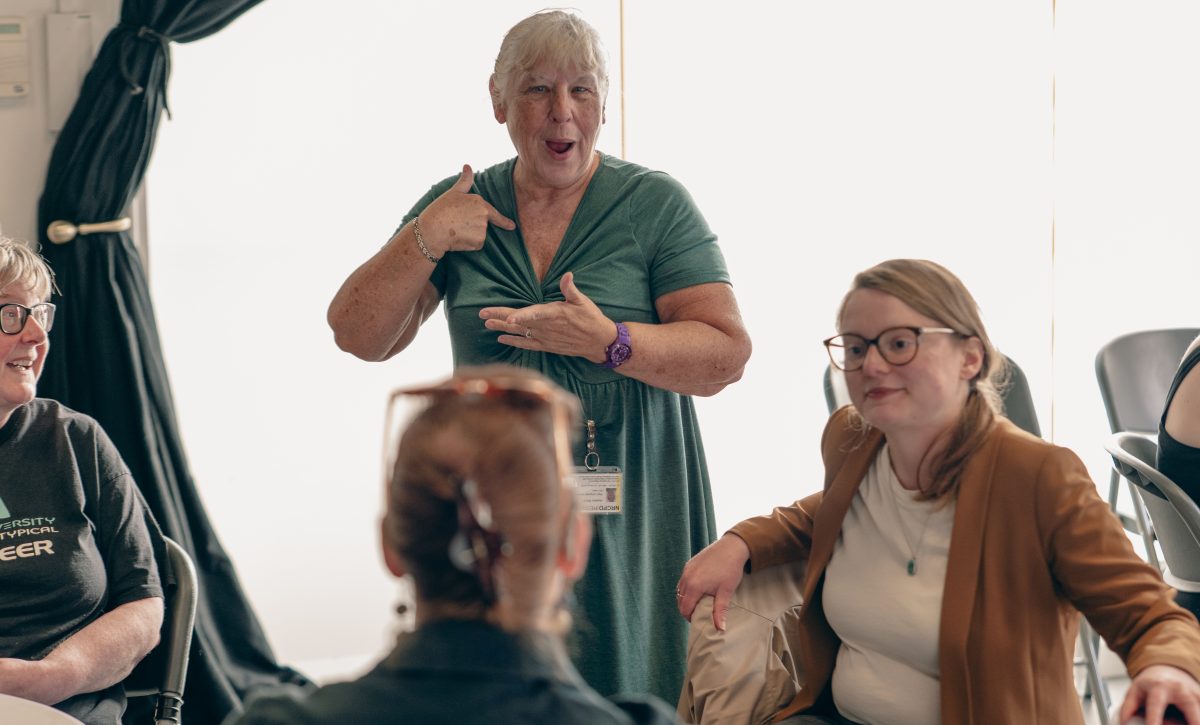
We produce films for organisations that show visitors what to expect at the space, with a particular focus upon accessibility measures. These follow a visitor as they tour your space, and point out physical, information, communication, and sensory accessibility aspects as they go.
The finished videos include an audio track, captions, and British and Irish Sign Language interpretation. These Access Information Videos make your space much more accessible by providing good advance information to d/Deaf, disabled, and neurodivergent people, and also show to everyone that you take disability inclusion seriously.
